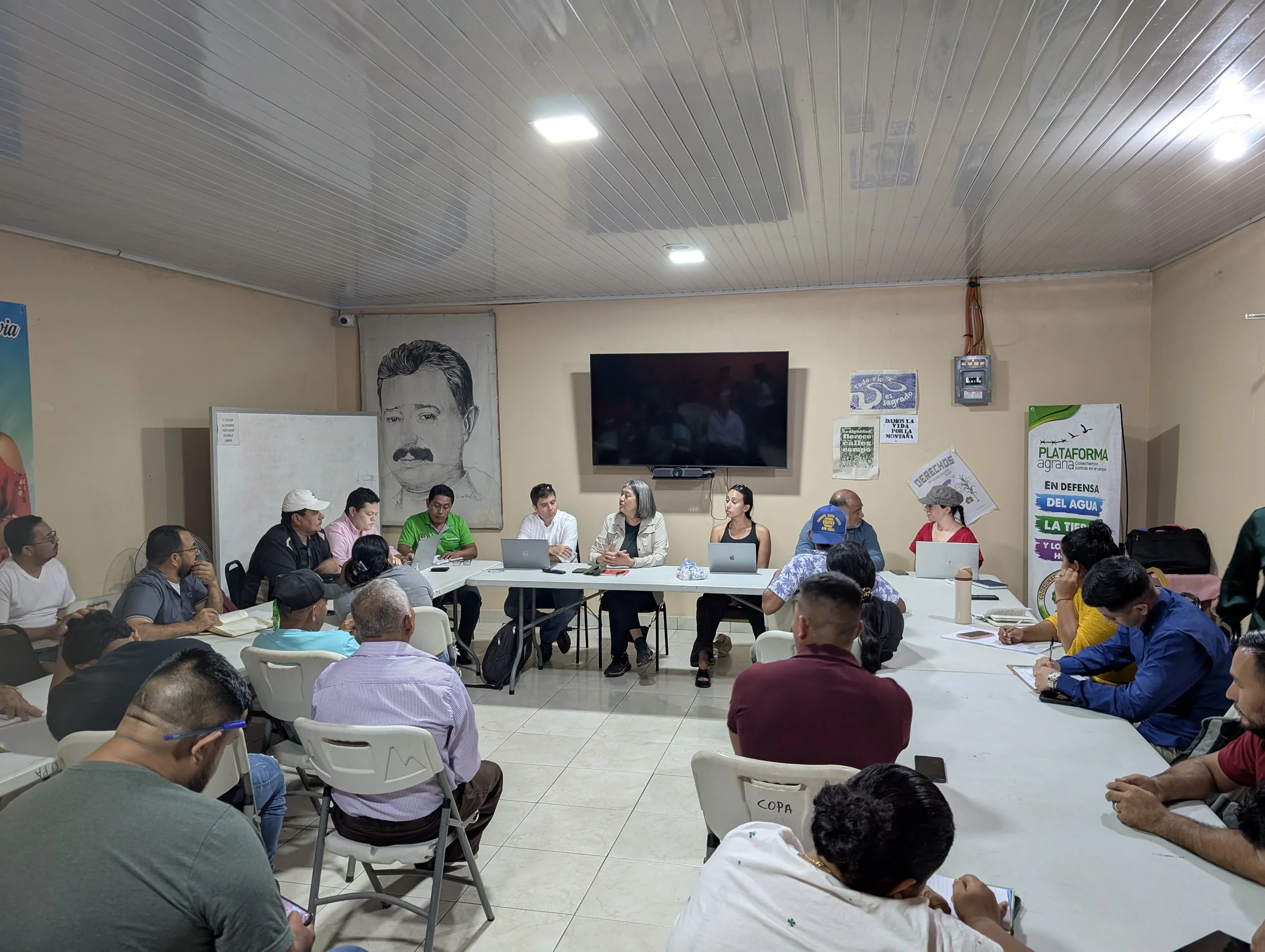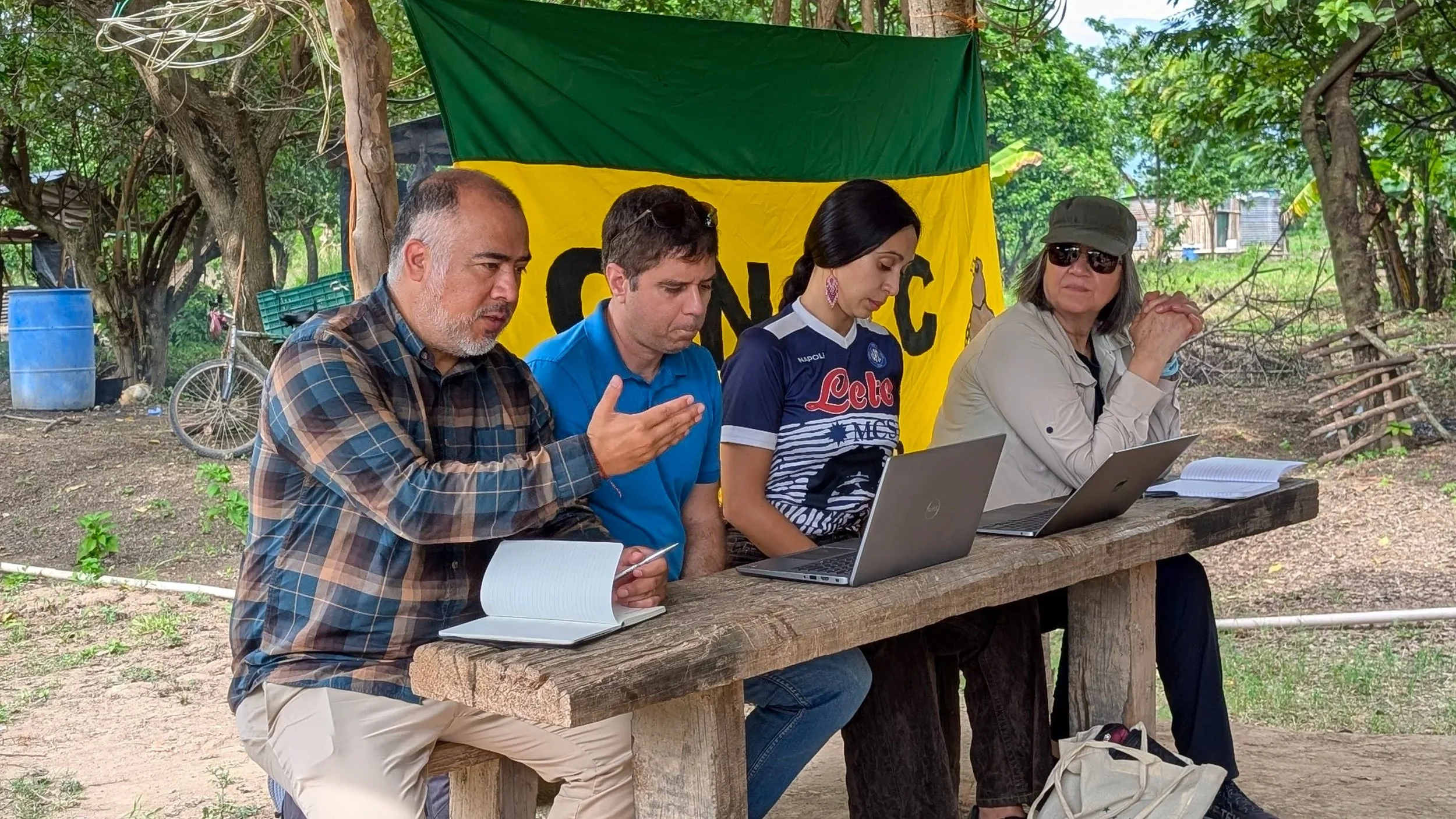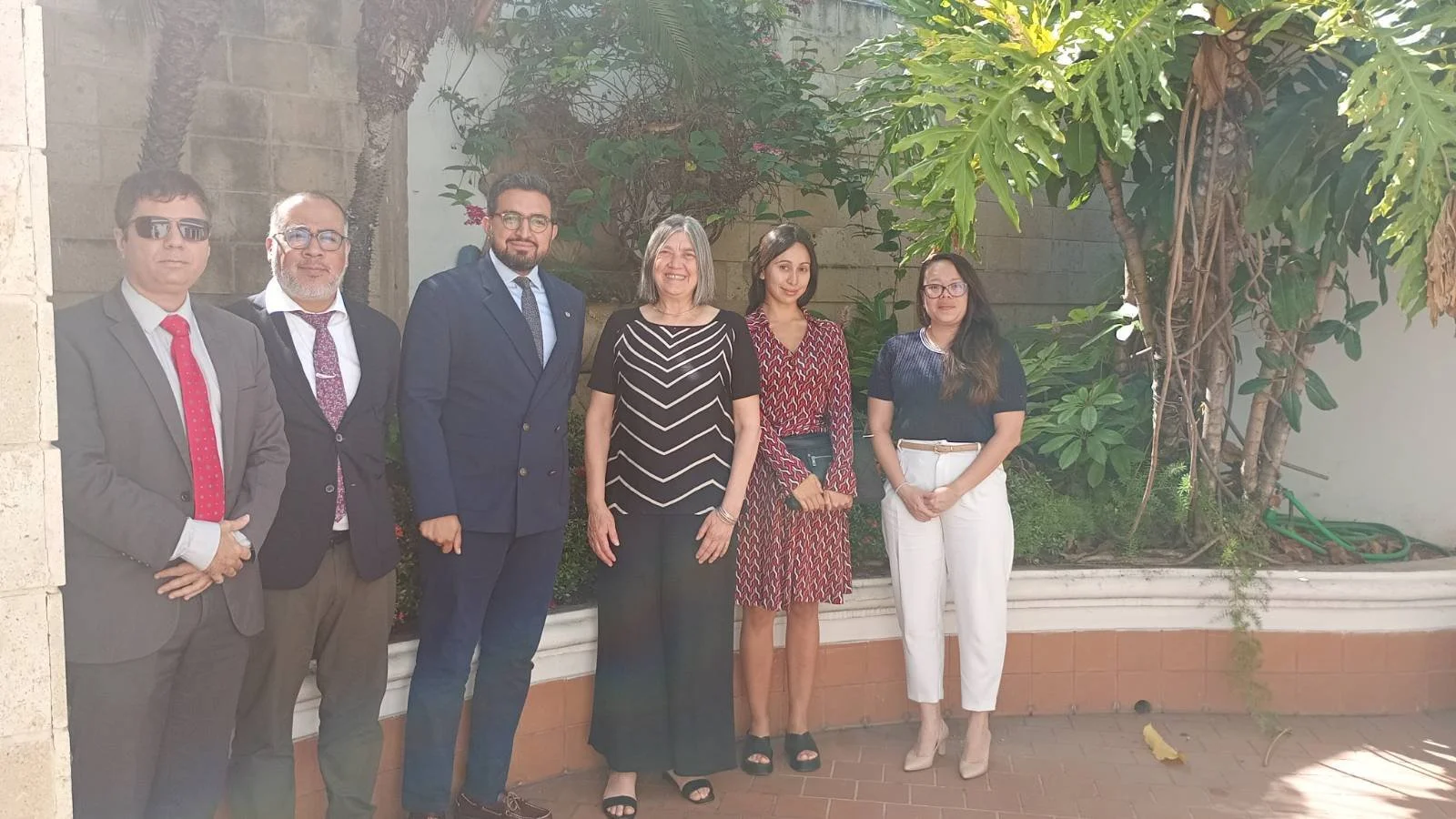International Lawyers Denounce the Criminalisation and Territorial Dispossession of Indigenous and Campesino Communities in Honduras
Tegucigalpa, 26 September 2025
This week, a group of international lawyers conducted a fact-finding mission in the departments of Francisco Morazán, Comayagua, Cortés, and Colón. There, they held meetings with Indigenous and campesino communities, social movements, and their legal representatives. The team also met with state authorities, the Public Prosecutor's Office, the OHCHR and the diplomatic corps. The purpose of these meetings was to analyse the structural causes of land dispossession and evictions. Based on their visit, the team has observed the following:
The delegates travelled to the departments of Francisco Morazán, Comayagua, Cortés and Colón to meet with communities, organisations & human rights defenders
Communities and human rights defenders continue to be criminalised for reclaiming their lands and territories and for opposing megaprojects. The adoption of Decree 93 of 2021 has exacerbated the situation, because the evictions it allows for are unconstitutional, as ruled by the Constitutional Chamber of the Supreme Court of Justice. Nevertheless, the Decree remains in force.
Several communities have been displaced through acts of extreme violence, including assassinations, committed by of business networks and organised crime groups acting with the direct participation or tacit acceptance of the State in a context of systematic impunity.
There is a continuing failure by the state to implement the recommendations made in this regard by international human rights bodies, including the OHCHR and the Inter-American Commission on Human Rights, in defiance of the rulings of the Inter-American Court regarding the Garífuna Triunfo de la Cruz, Punta Piedra and San Juan communities.
Regarding murders and other acts of violence that have been observed, criminal justice expert Omar Gómez Trejo pointed out:
“Acts of violence, especially the murders of Berta Cáceres and Juan López, reflect a systematic pattern of attacks against those who defend the land. Likewise, the interest of power structures is that extractive and agro-industrial megaprojects be carried out regardless of the human cost. The objective is to exploit rivers, extract minerals, and plant palm plantations.”
With regards to the widespread criminalisation of Indigenous and campesino communities and human rights defenders to combat agrarian conflicts, Daniel Cerqueira, a human rights law expert, emphasised:
Delegates came from Europe & the Americas
"Honduras is one of the few countries in the region where criminal proceedings, rather than the civil jurisdiction or agrarian dispute resolution, are used to evict Indigenous and campesino communities from their lands, without judicial oversight as to the validity of the purported property titles that are relied on to justify the evictions. This practice is contrary to its international human rights obligations."
Regarding the role of agro-industrial, extractive and energy companies, international human rights barrister Camila Zapata Besso stated:
"There have been reports of some companies participating in and financing megaprojects that lack social and environmental impact assessments and free, prior and informed consent. These projects have resulted in environmental damage and human rights violations, without companies complying with the due diligence required by international legal norms."
Finally, concerning the effects of evictions, expert on Indigenous peoples’ rights Isabel Madariaga Cuneo emphasised:
"In addition to their effect on commual property rights, evictions and the persistent threat of evictions have serious psychosocial impacts on the families that make up Indigenous, Garífuna and campesino communities. Permanent anxiety and lack of access to food, education, housing and water are just some of the damage caused by these arbitrary and unconstitutional evictions."
As well as civil society, government and the legal community, the delegation also met with representatives of the United Nations in Honduras
In conclusion, the delegation stressed that the structural causes of human rights violations against campesino communities and Indigenous and Garífuna peoples remain unchanged and have even worsened in recent years. Legal certainty and the protection of their lands and territories are essential conditions for resolving this presisting rural conflict.
The team was invited to Honduras by the Bufete Justicia para los Pueblos (BJP) and Peace Brigades International (PBI). It is made up of the following individuals:
Isabel Madariaga Cuneo, independent human rights consultant (Chile)
Omar Gómez Trejo, independent human rights and criminal law consultant (Mexico)
Daniel Cerqueira, director of the climate justice and human rights programme at the Due Process of Law Foundation (USA and Brazil)
Camila Zapata Besso, human rights barrister at Doughty Street Chambers (UK and Colombia)
The information gathered first-hand will be drawn into a report and used to put forward constructive proposals, from the perspective of legal expertise, for how Honduras can improve access to justice for all. The delegation expects to publish their report in the first quarter of 2026.
PBI UK’s Advocacy Manager, Christina Challis, accompanied the Delegation during parts of their visit.




